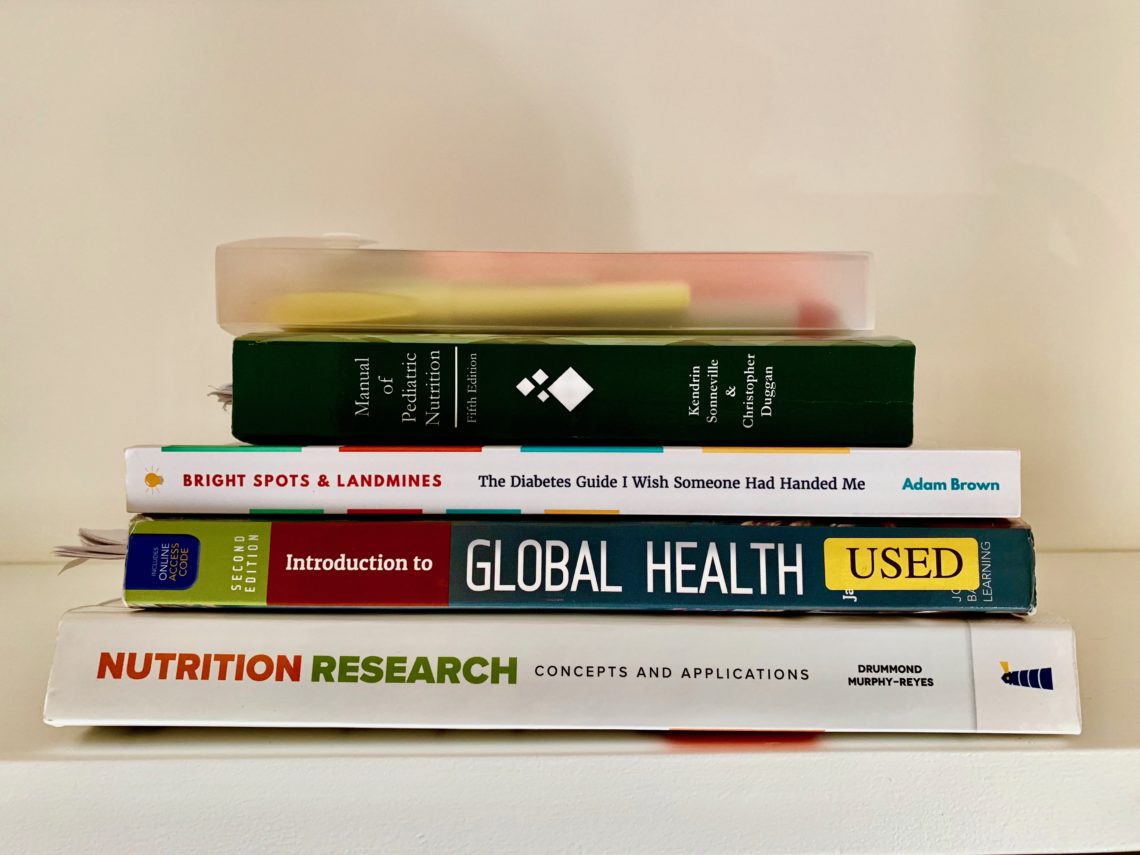
Graduate School: My First Semester
I wish I had a better photo to portray my experience so far in grad school, but as an online student also working 40+ hours at my day job, the stack of books just about sums it up. I hemmed and hawed about returning to school; I am starting to gain a reputation among family and friend as the “eternal student”, but I just wasn’t ready to end the academic chapter of my life just yet.
I’ve received a lot of questions about the program that I am enrolled in; I also had a lot of questions myself just a few months ago, so I thought I would put some more information out there for future students.
I should start by saying: I love my job. I had no interest in quitting or reducing my hours, so I needed something flexible and local. I also wanted something affordable; I was not willing to shell out $40K-$50K at a private institute. After doing my research and chatting with some of my peers, I decided to “apply to” Great Plains IDEA.
GP-IDEA is a unique program offering a variety of degrees through a consortium of universities. Applicants select their “home” university (I selected Colorado State Univerity) but take classes through an alliance of 8-10 other universities. The entire program is completed online with all the universities locked into the same rate – $580 per credit hour. At 36 credits for the dietetics program, the total cost is about $21,000.00.
This fall I started with 3 courses and a 1-credit student seminar, for a total of 10 credits. Although it’s a slightly heavier courseload than the recommendation, if all goes as planned, I should have my M.S in Food Science and Nutrition by December 2019.
Research Methods in Nutritional Sciences
Dr. Gail Gate, Phd, RD, FAND | Oklahoma State University
Of the three courses I took this semester this was actually my favorite course, despite my nerves and apprehension at the start. It was also my first opportunity to work on my final non-thesis paper. Based on statistical methods, the goal of this course was to provide tools and knowledge to critically evaluate published research literature by examining experimental design, sampling, and instrumentation, and to gain a better understanding of ethical considerations in research. I also liked the text for this course – all of the referenced research and statistics examples were based in public health and nutrition (so, very relatable for someone who works in dietetics).
Pediatric Clinical Nutrition
L. Maria AhMu MS, RD, LD | University of Kansas Medical Center
The second course, pediatric clinical nutrition, offered a run-down of nutrition for acute and chronic disease in the pediatric population. I had an opportunity to brush up on my enteral and parenteral calculations, use of growth charts, and medical nutrition therapy for disease states based on pediatric age groups. As I don’t often work with children, and never in the critical care setting, this course just made me terrified of all the things you have to worry about as a parent!
International Nutrition and World Hunger
Rachel Simpson, MS, RDN, LD | University of Kansas Medical Center
My third course examined global health and nutrition, assessment of nutritional status of populations, and the role and implementation of international policies, aid, and interventions. This course had some really fun projects, including an interview with someone born outside the United States and proposed nutrition intervention to be delivered internationally. It definitely sparked my interest to do some more work abroad in the future.
Looking forward to another semester of learning and growth!
szh






One Comment
Jan Goldman
Go, Sarah! I’m glad to hear you’re continuing to learn and grow. Good for you! Love, Jan